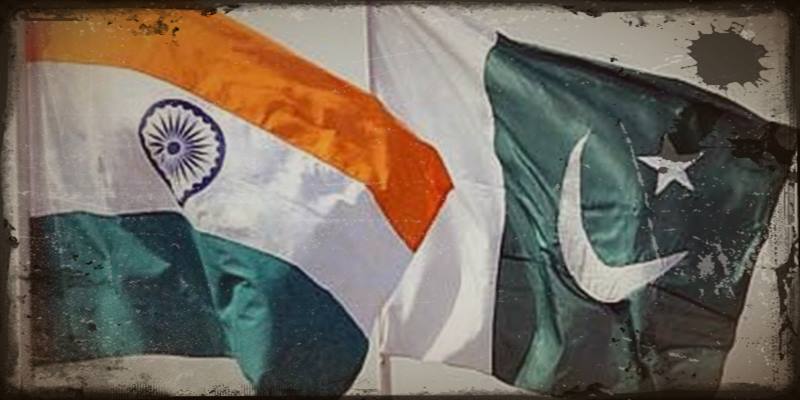Kolkata, Aug 1: “A dialogue process is not about ‘who wins’ but about empathetic understanding”, came the strong words from Pritha Kejriwal, the Editor-in-Chief, Kindle Magazine, as she started on a solemn note with a critical evaluation of what has taken place with India and Pakistan and what hasn’t in the last 60 years. She was speaking at the Round Table organized by Kindle at the Kolkata Town Hall. The panel discussion riveted on the ongoing Indo-Pak talks and the future that we look up to.
Addressing the ongoing Indo-Pak dialogue as ‘deliberately redundant’, Pritha went on to add that there are forces existing in both India and Pakistan who have systematically instructed people to “confuse mutual hatred with patriotism.”
Mani Shankar Aiyar, the Member of Parliament (Rajya Sabha), was critical at India’s monochromatic view of Pakistan. Citing instances from his experience of staying in Pakistan for three years (1978-82), he asserted that there are people in Pakistan who strongly believe that friendship with India is possible. Blaming the “dreadful nature of polity” for perplexing the situation, he continued to add how facts are being twisted by media fraternity and disseminated in a way so that it fills the appetite of a fraction hell bent on disrupting the peace process.
Munizae Jahangir was candid enough to dig out Pakistan’s appalling present. Although conservatives in the country are doing the rounds, political parties in Pakistan, according to Munizae, are convinced that peace is the only solution. “People in Pakistan are fighting to stay alive and keep safe”, lamented the young journalist. Adding that there is lot of Pakistan that does not come alive in Indian media, Munizae raised a pertinent question – If terrorists are not confining their activities within the borders then why are the politicians restricting themselves to borders?
Taking clue from the previous speakers, Suhel Seth started off on a rather sarcastic note finding resemblance between “young Qureshi and old Krishna” and “decisive Gilani and an even more decisive Manmohan Singh.” Taking a dig at the politicians for not being serious about peace and not having any strategy for peace, Suhel insisted that we “cannot postpone the problem since in that way we substantiate the pain”. “We just refuse to be logical and learn from history”, noted the eminent columnist.
A policy analyst and writer, Raza Ahmad Rumi, was precise in his views as he targeted the very foundation of the Indo-Pak relation. Reiterating his belief that there is “no alternative to information flow”, Rumi advocated the idea of augmenting ‘people to people dialogue.’
Without going into the political aspect of the bilateral relations, Shabnam Hashmi, a social activist, pinpointed the apathy among Indians and Pakistanis to know each other. Describing the pathos that emanated from years of separation and unmerited suffering by the people of both the nations, Hashmi observed that “emotional engagement is becoming less and less.” Referring to the acts of hate-mongers like VHP, RSS and Bajrang Dal, Hashmi asserted that Indian Prime Minister does not realize that there are people in his country who do not want peace with Pakistan. She strongly believes that Home Ministry is deficient in understanding the intensity of “infiltration in every sphere of human life.”
For Taimur Rahman and his fellow Pakistanis “every city is Mumbai and every day is 26/11.” The Pakistani musician and the General Secretary of the Communist Mazdoor Kissan Party had scores of sad scenarios to bring forth. The tumult and the daily fear that maim the lively existence of Pakistanis were lucid from Taimur’s description. He evinced the fight almost every Pakistani fights against religious extremism. Talking about the artists in Pakistan struggling to keep their art alive and survive frequent assault, Rahman maintained that these artists are the real harbingers of change who create and construct.
Mr Farooque Shaikh came up with an unconventional take on the issue finding it ludicrous to see the unwanted aggression in Indian soldiers and Pakistan soldiers while they parade at the Wagah border. “Why do we (citizens of both the nations) cheer such parody?” asks Shaikh. “Why are we playing the same moves for the last 60 years?” said he on the pretext of failed bilateral dialogues. Urging people to come out of their cocoon of jingoism, the master actor and a well known social activist called for a need to put a concerted effort. He concluded with an American phrase, “Put your money where your mouth is”, which means “support something that you believe in”.
Progressive India is still an elusive phrase according to Parnab Mukherjee, an independent media analyst and a senior columnist with Kindle. Being blatant in his criticism towards the government of both the nations, Mukherjee posited, “For every Baloch Pakistan has created, India created Manipuri. “Have we really looked into each other’s history? Have we exchanged narratives?” were the poignant and self-explanatory questions he raised. Pointing out the fact that the quality of protest is poor in India and Pakistan, Mukherjee cited examples of the people’s movement in Nepal that overthrew the King. He postulated the importance of collective effort and advised people of both the counties to ‘pedicure’ their thoughts in order to “mend the fence”.
Mani Shankar Aiyar shared his idea on the ‘way forward’ by elucidating five points. According to the former Indian diplomat, both India and Pakistan should “consolidate the progress made during the Musharraf era in a written document”. Aiyar called for an integrated and not a fractured dialogue with special emphasis on the periodicity of the same. “Two special envoys should be employed who will have no work other than talking to each other. There should be no veto on the agenda with both the parties completely free to discuss their concern without any constraint.”
The generic and the specific of the evening’s discussion among the panelists and the attendees will be drafted and sent to both the heads of government at New Delhi and Islamabad.



